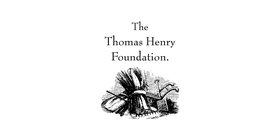
Gary Spence
I grew up on a dairy farm in Kilkeel, Co. Down which transitioned to beef and crops which is currently farmed in a partnership between my father and I. I studied Agriculture Technology at Queen’s University Belfast and CAFRE Greenmount which included placements in Devenish Nutrition and with Fields of Life Uganda.
Upon graduating I have worked in the industry in roles which have included feed formulation, sustainable agriculture practices and soil health research and advice. I have also founded a farmer’s cooperative in Uganda called Seeds of Hope, where we sell high quality seeds, fertiliser and agrochemicals to small holder farmers to develop their businesses and families. We also supply crop storage, training and help to bring products to market. As I begin my Nuffield, I will be starting a new role at Fane Valley as technical services co-ordinator in the forage and agronomy team where I will be developing programmes on sustainable farming practices for livestock and arable farmers. In my spare time I like to spend time in the countryside with my dogs and train my springer spaniel and german pointer for shooting. I also enjoy cooking an making different produce from the animals we would shoot on our days out.
I would like to thank the Thomas Henry Foundation for their support in this once in a lifetime opportunity to research a topic that I am very passionate about and will help the livestock industry to overcome the challenges they face. I would also like to thank my friends, family and my employer for their support and in particular my father David as I start this journey as a Nuffield Scholar.
I can’t believe it’s not beef! Can livestock compete with alternative proteins?
The Thomas Henry Foundation

Study Overview
There is a great challenge facing the global agriculture sector to provide enough protein for a growing and developing population and we need to do this in a sustainable way. On a daily basis animal-based protein seems to be under attack on grounds of welfare, health issues and the environmental impact they have.
I have seen the importance that livestock have in the roles of people’s lives as farmers in the UK and Uganda and want to investigate how they compare to alternative products and find ways that we can continue to farm in a way that is economically, environmentally and socially sustainable.
I plan to visit New Zealand, US, Argentina and several European countries to better understand how animal and alternative proteins are produced, how the public views them and how we can better market animal proteins and improve the production of them.